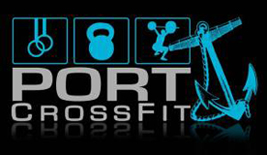Hydration plays a pivotal role in optimizing physical performance. Whether you’re an athlete or working out for improved health, staying hydrated is a vital part of your training routine. Few of the key components that coincide with hydration are:
- Sustained Energy Levels: Dehydration can lead to reduced blood volume, making the heart work harder to circulate oxygen and nutrients to muscles. This can result in early fatigue, reduced endurance, and feeling lethargic. Staying hydrated helps maintain consistent energy levels throughout your workout and through the day for that matter.
- Improved Muscle Function: Adequate hydration helps prevent muscle cramps and promotes proper muscle function. When muscles are well-hydrated, they operate much more efficiently, allowing for improved performance through your training session.
- Thermoregulation: During exercise, your body temperature rises. Sweating is the body’s natural response to cool your body temperature or bring back to normal. However, if you’re dehydrated, your body’s ability to cool itself is compromised, this can result in decreased performance or possibly heat exaustion
- Faster Recovery: After an intense workout, rehydration is crucial for recovery. Proper hydration helps transport essential nutrients to muscles, aids in the removal of waste products, and reduces the risk of post-exercise muscle soreness. Of course your workout matters, but the ability to repair and recover is just as important.
- Mental Acuity & Cognitive Function:Your brain relies on proper hydration to function optimally. Even mild dehydration can result in decreased concentration, memory problems, and mood swings. Staying hydrated supports mental clarity and cognitive performance.
- Health & Well Being: Hydration is linked to various aspects of health, including skin health, kidney function, joint health, and toxin removal. It can even go as far as assisting in the breakdown food, absorption of nutrients, and the removal of waste in the digestive system.
But how much water is enough to stay hydrated? We get this question often! How much water should I drink in a day? Well besides a few indicators which I’ll mention, a general rule of thumb can be half your body weight in ounces. Please keep in mind this can vary on climate, age, exercise level and overall health but 1/2 your BW is a great starting point. Two key indicators you can use to monitor proper hydration is thirst and the color of your urine. I know this sounds simple but when your thirsty, drink! The other is the color of your urine. If your urine is a pale yellow then this is a good sign that you are hydrated. On the contrary, if it is dark, its time to drink up!

